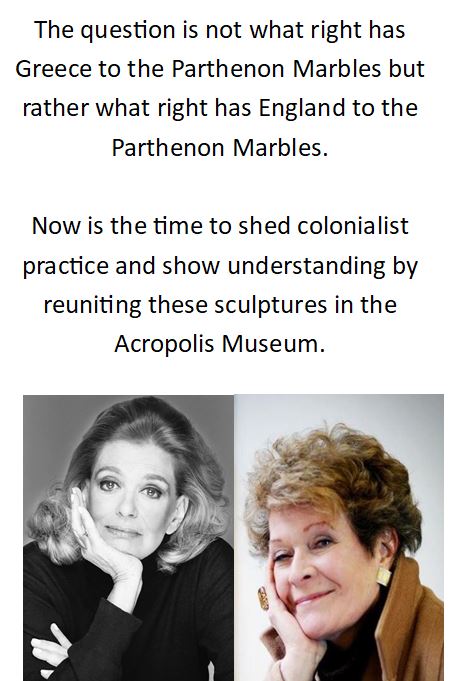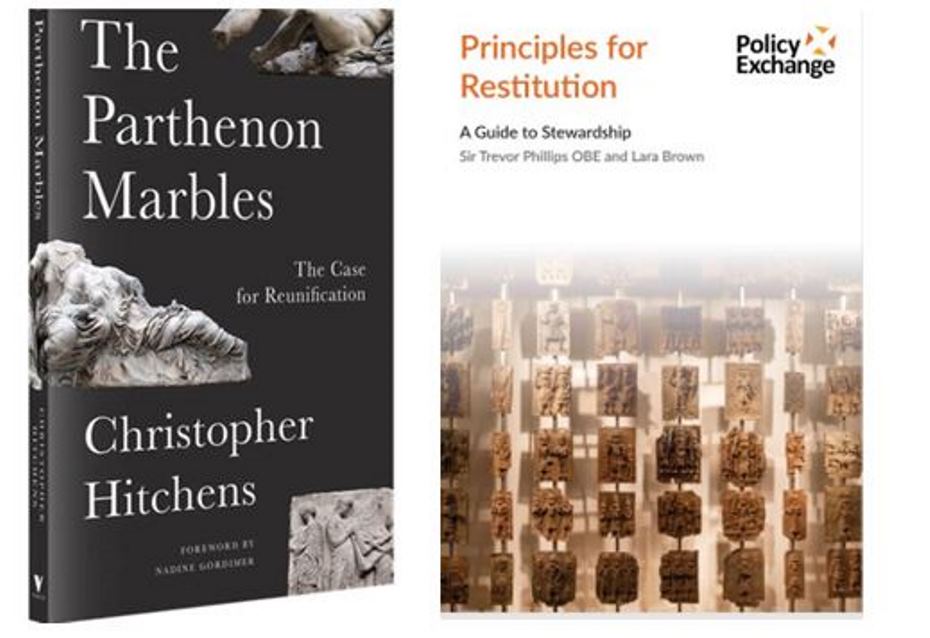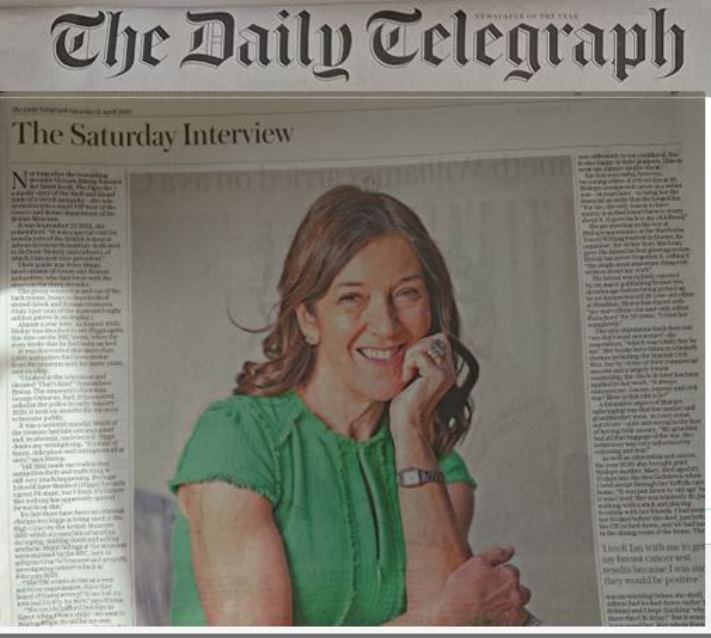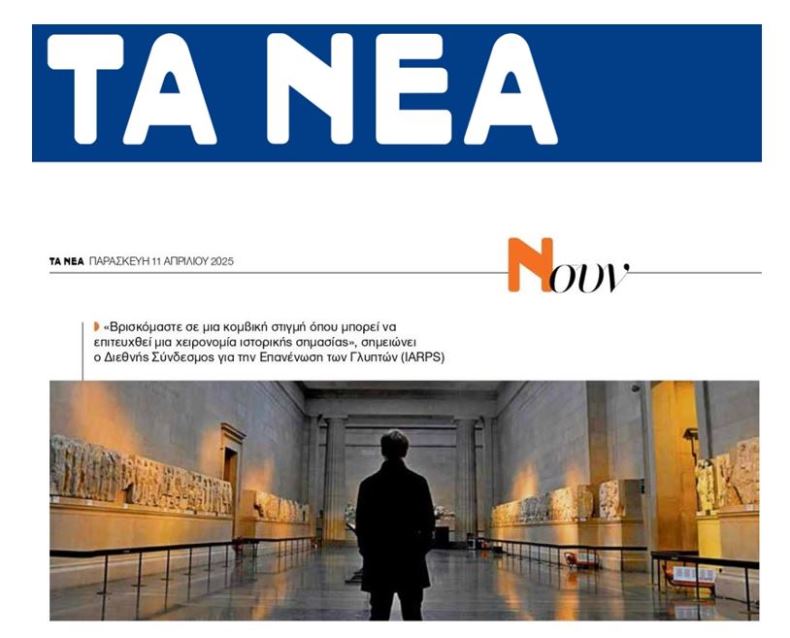Wednesday 06 March 2024 and our thoughts are with the Hellenic spirit that was Melina Mercouri.
Three decades since Melina passed away, at every protest, every campaign, every thought that is directed at the reunification of the Parthenon Marbles, also embraces Melina's soulful and heartfelt pleas.
As Greece's Minister of Culture and Science, Melina Mercouri's commitment for the return of the sculptures removed from the Acropolis in the 19th century continue to inspire all that also feel strongly and view this long-standing request as a just cause.
“I hope to see the marbles return to Athens before I die. But if they return later, I will be reborn to see them.” Melina Mercouri said, a phrase repeated by other women whose lifetime dedication to this cause continues.
The reunification of the Parthenon Marbles campaign began at the UNESCO General Policy Conference in Mexico (1982) when Mercouri, then Minister of Culture and Science for Greece, put forward Greece's request for the return of the sculptures. And it is at UNESCO's ICPRCP meetings that this request continues to dominate.
On 29 September 2021, UNESCO ICPRCP Intergovernmental Committee, for the first time in its history, adopted by consensus Decision 22 COM 6, which is specifically dedicated to the Parthenon Marbles issue. The added value of that Decision is that for the first time the committee: "Recognized expressly the legitimate and rightful demand of Greece. Recognized that the case has an intergovernmental character and, therefore, the obligation to return the Parthenon Sculptures lies squarely on the UK Government and expressed its disappointment that its respective previous Recommendations have not been observed by the UK."
There is global support for the reunification, especially post the opening of the superlative Acropolis Museum, and yet there is no British political will to amend the museum's law that could see these sculptures returning to Athens. Of the 50% of the original sculptures that survive, about half are in the British Museum and half in the Acropolis Museum. There are a few fragments in a few museums: the Louvre in Paris, the National Museum of Denmark in Copenhagen, the Kunsthistorisches Museum in Vienna, and the Martin von Wagner Museum in the University of Würzburg.
The good and great news is that some fragments have been returned and that the campaign continues. Despite the lack of political will in the UK, there is plenty of public support and in fairness, that has been there for many decades.
Greece has also made repeated offers to provide the British Museum with Greek artefacts not seen outside of Greece, should the surviving Parthenon Marbles be reunited in the Acropolis Museum.
There are ongoing talks between PM Mitsotakis and the British Museum.
We continue to hope.







Comments powered by CComment